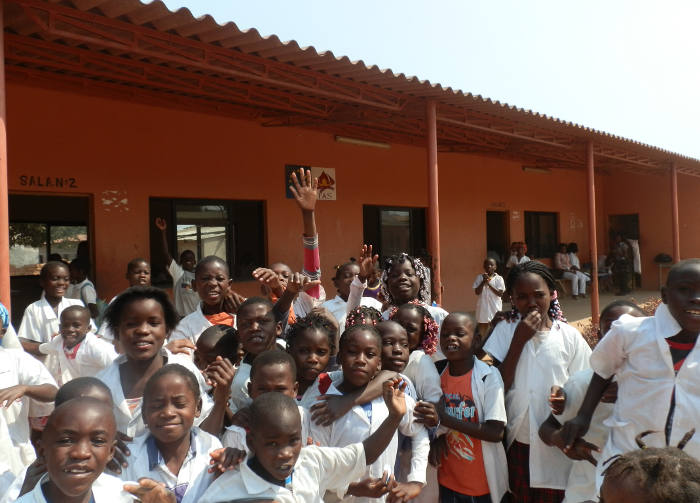-
06 agosto 2015
Categoría : Opinión
Keys to ending poverty in Angola
Helena Farinha, Directora general adjunta del FAS, nos cuenta qué es el FAS y cuáles son sus objetivos en la lucha contra la pobreza en Angola.
 Escuela de Kizanga-Malanje. Fotos cedidas por el FAS
Escuela de Kizanga-Malanje. Fotos cedidas por el FASHISTORY OF THE FAS
Actions to fight poverty by the Angolan government started to take shape with the creation of the Social Support Fund (FAS) on 28th October 1994 through Decree No. 44/94 of the Council of Ministers within the framework of the Economic and Social Programme – PES/94. As a government body, it was granted legal personality and administrative and financial autonomy in its founding statutes.
To accomplish its mission, the FAS has utilised funds from the Angolan government and grants from diverse funding sources, such as World Bank credits, multilateral donations from the European Union and bilateral donations (Norway, Japan, Sweden, Italy, the Netherlands, and the United States of America) totalling 186.3 US dollars.
WHY FUNDS WERE REQUESTED FROM THE EU
In 2013, the FAS expanded its scope to provide national coverage and invest in regions of the countries with extremely vulnerable populations in terms of access to goods, services and opportunities.
The main objective of the Local Development Project (LDP) financed by the European Union is to combat poverty in Angola through effective decentralisation of service delivery, increased opportunities for business, and income generation. Its specific objectives are the following:
Improve the access of rural and vulnerable families to basic social services and economic opportunities.
Strengthen the institutional capacities of Angolan municipalities.
The FAS has always been attentive to context changes in order to adapt them to the real needs of the target public, i.e., the most vulnerable populations. This has meant transitioning from emergency intervention, whose main priority was reconstruction and construction of local physical capital (peri-urban and rural areas), to a type of intervention focused on strengthening physical, human and social forms of capital, and, more recently, economic capital (since 2011). The primary objective of this is to strengthen the 26 municipalities so that local and municipal leaders participate in their development process through better utilisation of the potential and productivity they have.
In this way, with this intervention, the FAS is working in the following areas:
Strengthening physical capital in the face of growing limitations on the access of populations to basic social and economic services (education, health, water, market, bridges and temporary bridges).
Strengthening social capital to address the need to continue stimulating the participation of citizens in identifying and solving the problems of their towns through public consultation mechanisms, bringing citizens, the civil society sector, the private sector and public bodies (municipal administrations) closer together.
Strengthening human capital because, during the war, there was a great exodus from rural zones towards the cities in search of protection; the majority of municipalities were left without qualified administrators, and so it is necessary to invest in training, not only of organised civil society but also to build the capacities of the employees of the local administration.
Strengthening economic capital because most economic and productive sectors which could be a means of lifting the local economy are not trained or developed enough to represent an added value for collecting revenue for municipalities, and because the main source of income for families tends to be the informal sector, especially in the case of women.
Helena Farinha
Deputy Director General of the FAS
Las opiniones vertidas en este blog son exclusiva responsabilidad de la persona que las emite.





